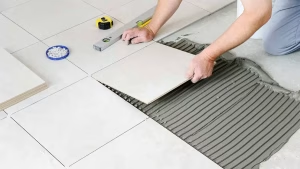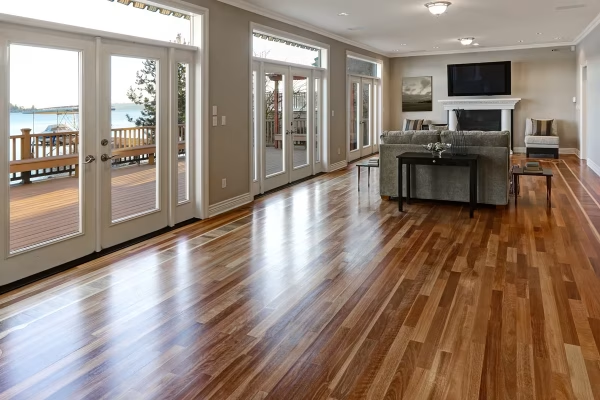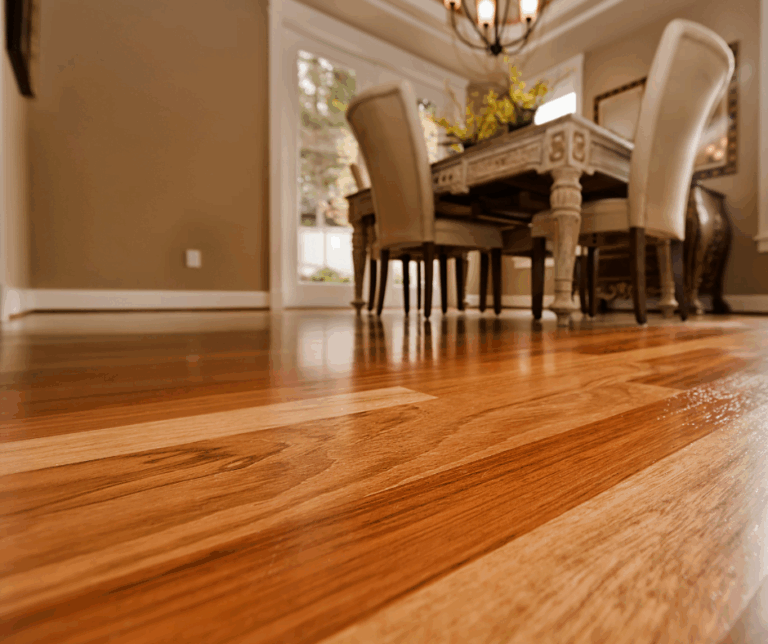
The 7 Hardwood Flooring Trends for 2025
In 2025, flooring trends focus on eco-friendly choices and bold styles that enhance any room. Here are the top flooring trends this year:
1. Natural Matte Finishes
Matte finishes are popular, showing the natural beauty of wood while being practical and stylish. They help hide minor marks and dust.

2. Wide and Extra-Long Planks
Wide, long planks are in demand. They make rooms look larger and show off the wood’s natural look, perfect for open spaces.

3. Dark Walnut and Warm Neutral Tones
Dark shades like walnut and warm colors are trendy, creating a cozy feel that suits minimalist and rustic designs.
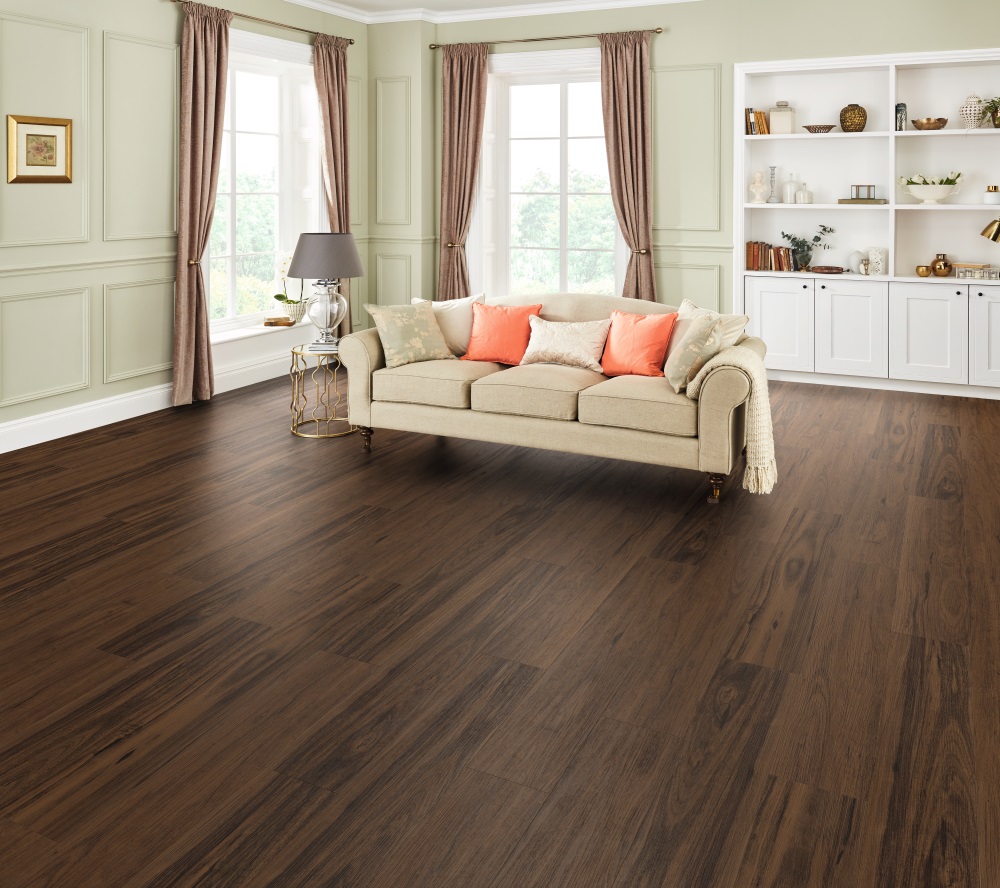
4. Wire-Brushed and Textured Surfaces
Textured surfaces like wire-brushed finishes add depth and hide wear, ideal for busy homes.
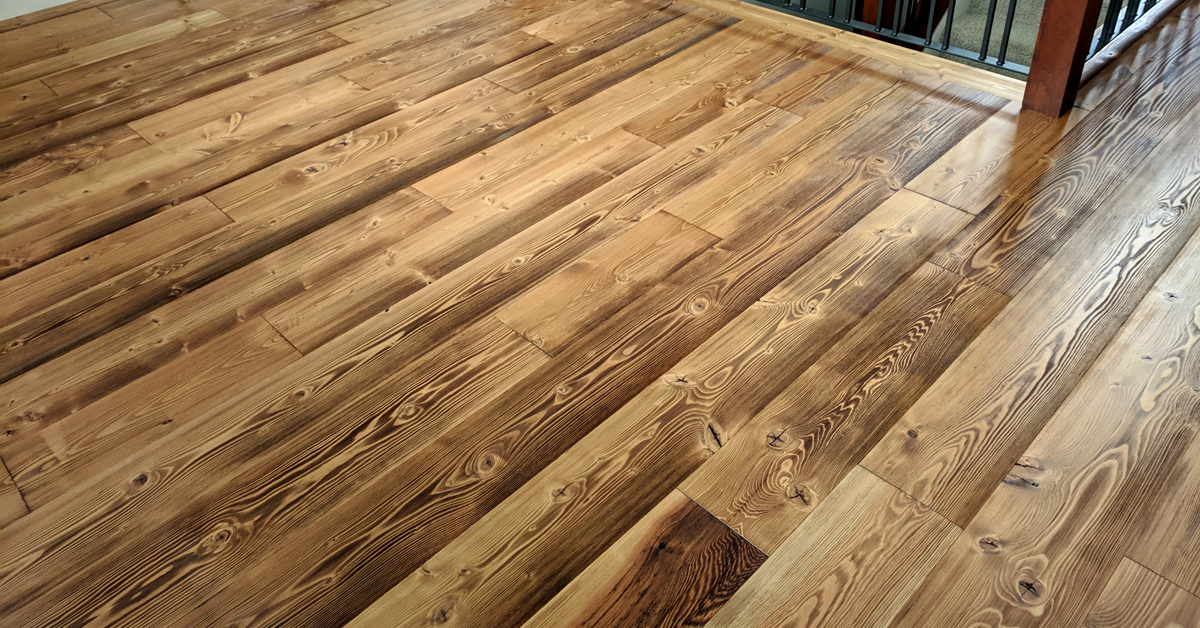
5. Sustainable and Reclaimed Wood
Eco-friendly flooring is popular, with options like reclaimed wood offering unique charm and promoting sustainable practices.
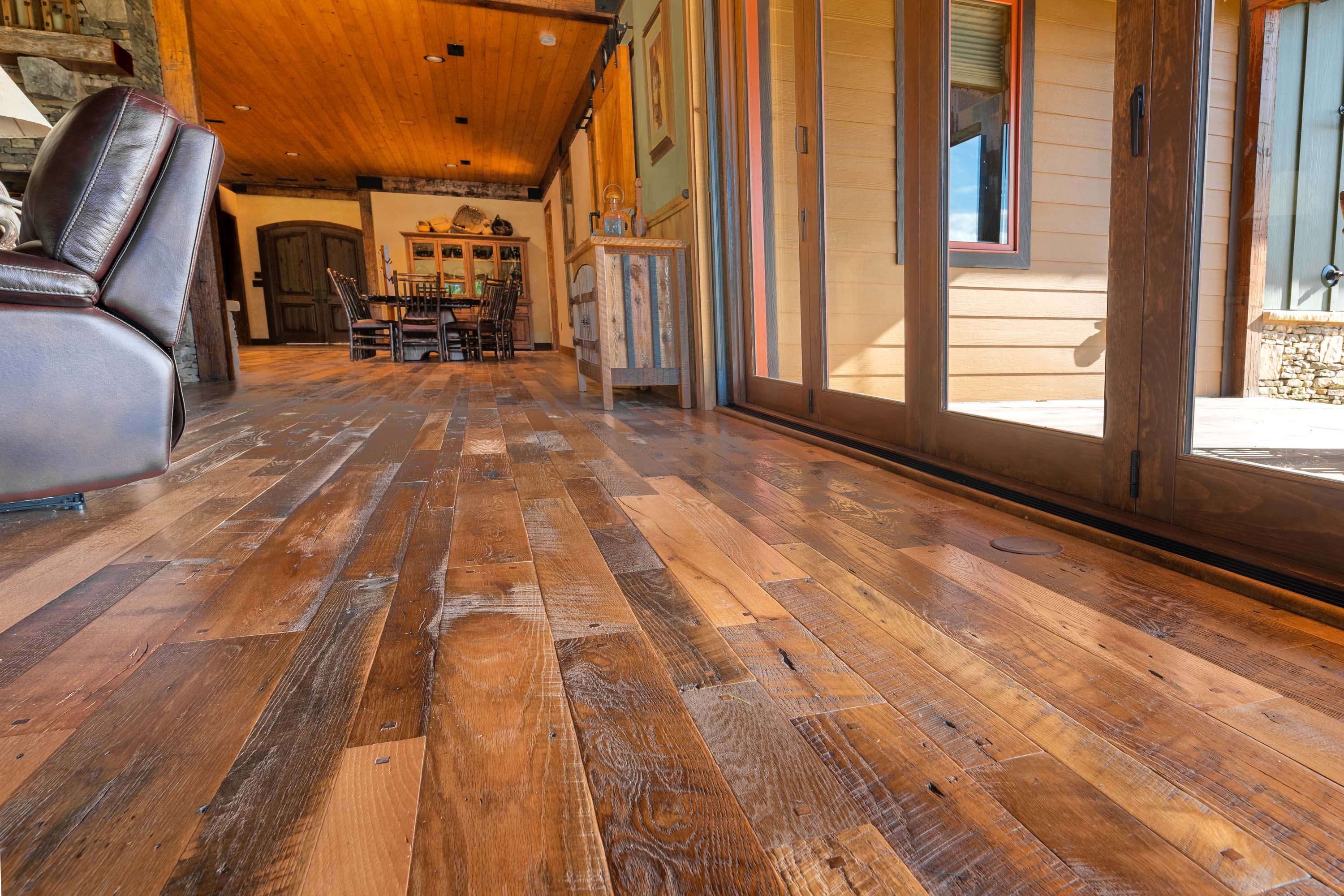
6. Mixed-Width Installations
Mixing plank widths creates a custom look, adding movement and breaking visual monotony, great for modern-rustic styles.
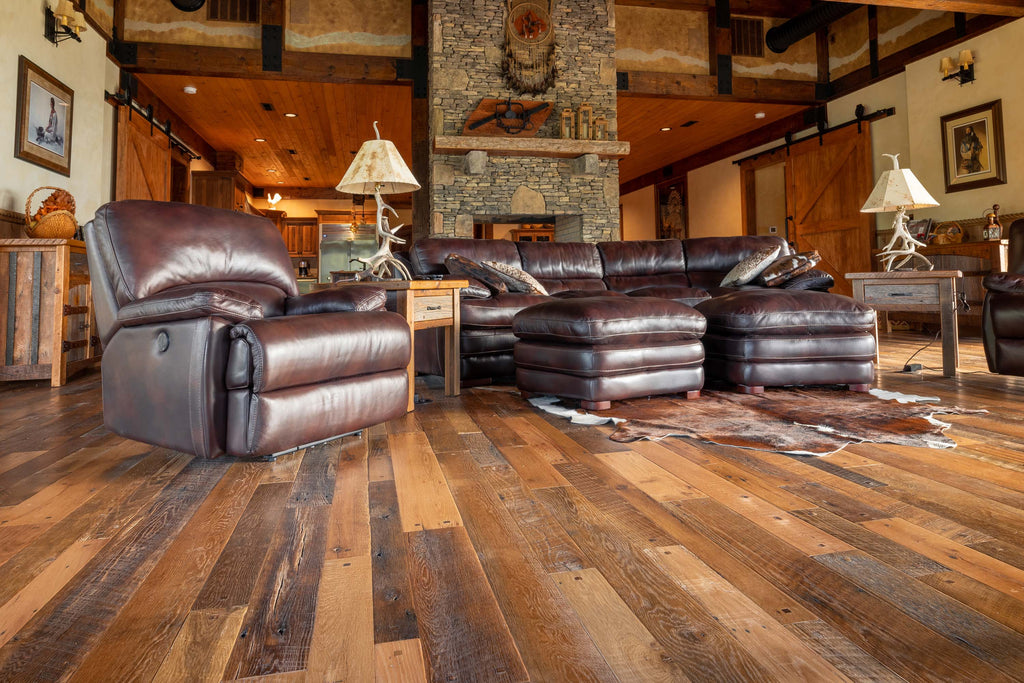
7. Parquet and Herringbone Layouts
Classic patterns like herringbone are back, adding elegance to spaces with a blend of traditional and modern styles.

Hardwood Colors, Grains & Finishes to Watch
In 2025, flooring styles highlight natural beauty with elegance. Focus is on real tones, soft finishes, and unique wood features that enhance interiors.
Cool vs. Warm Tones
People are choosing warm, earthy colors like honey and caramel instead of cool grays. These colors create a cozy feeling, fitting with the natural design trend.
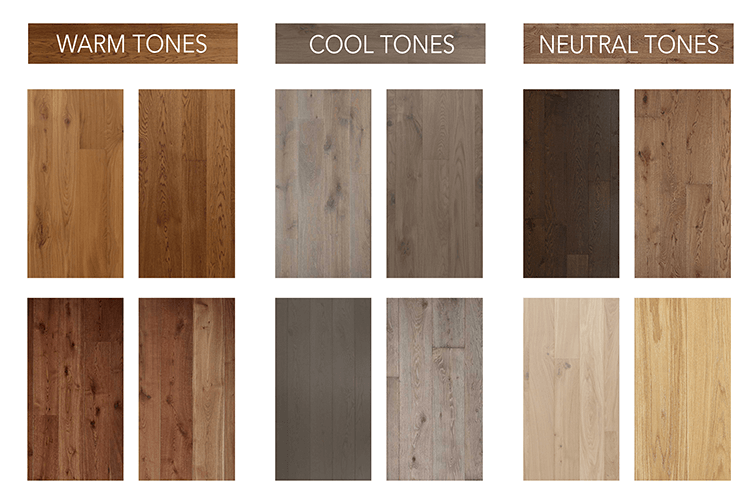
Low-Gloss, Natural Oil Finishes
Low-gloss finishes are trendy for showing wood’s grain and a simple look. Natural oil finishes make wood stronger and give a soft, matte look that’s stylish and useful.
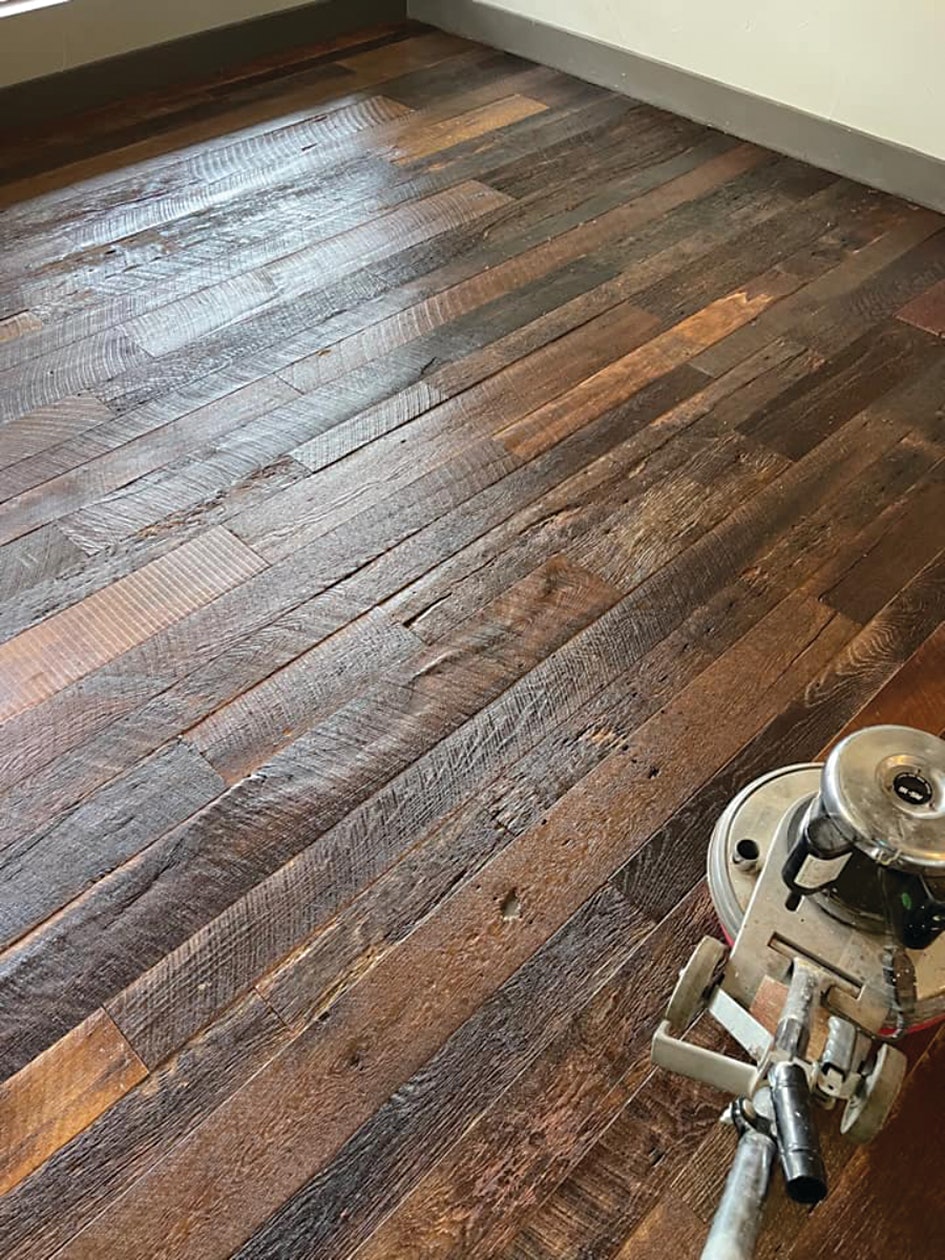
Unique Wood Species and Character Marks
People like wood with unique patterns and natural marks. Hickory, for example, has colors from light tan to deep brown, adding charm to spaces.
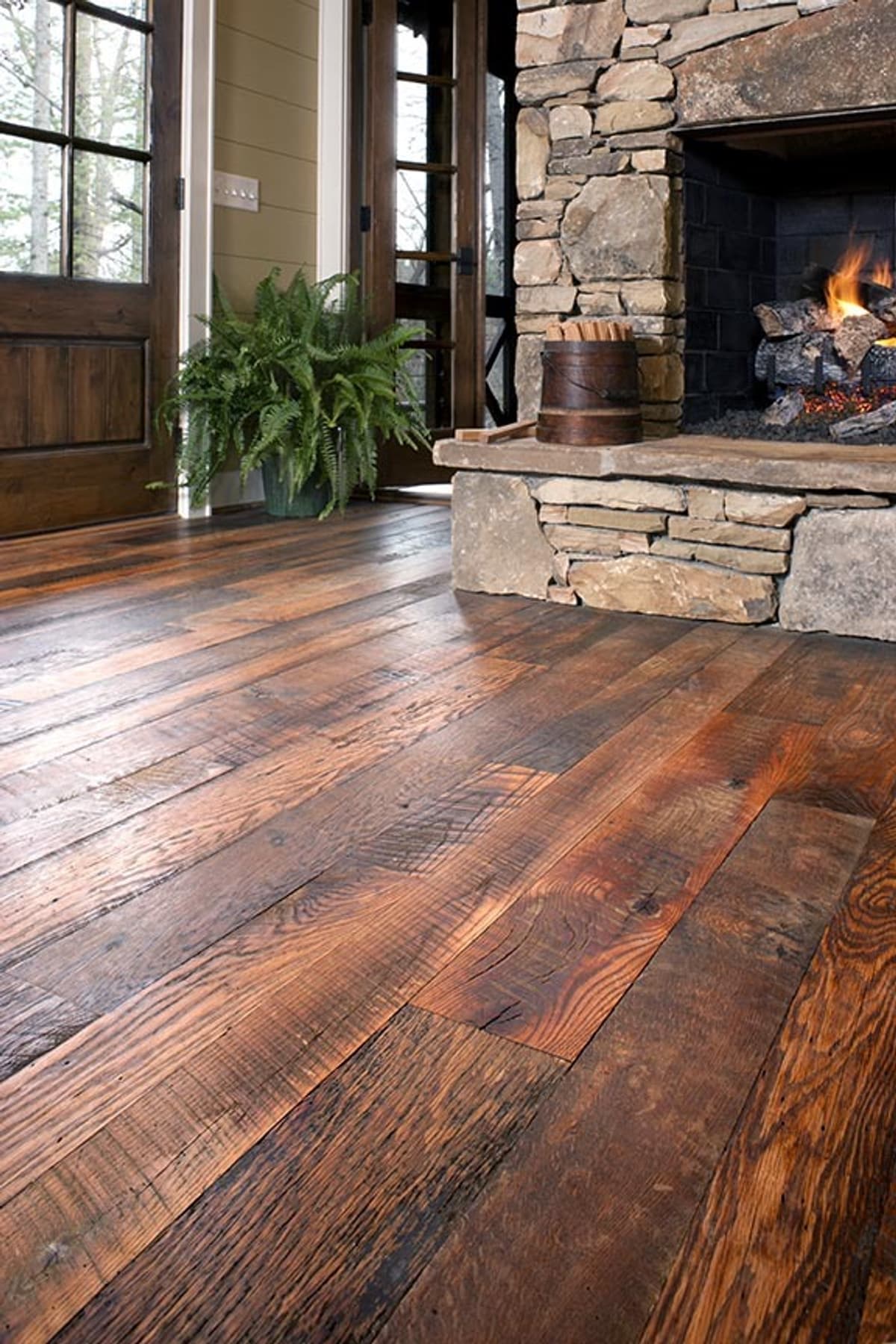
Best Hardwood Types by Room (Solid vs. Engineered)
The choice between solid and engineered hardwood depends on where you will place it. Things like moisture, the type of floor underneath, and how much the area is used matter. Here’s how to choose the best hardwood for each room.
Kitchens and Basements: Is Engineered Wood Better?
In areas with lots of moisture like kitchens and basements, engineered hardwood is great. Its layers help prevent warping and swelling. Look for waterproof or water-resistant types that can handle spills.
📌 Bonus Tip: Use click-lock floating floors in basements with concrete floors — no nails or glue needed.
Bedrooms and Living Rooms: Solid Wood Benefits
In dry places like bedrooms and living rooms, solid hardwood is a classic choice. It can be sanded and refinished, giving it long-lasting value. Its deep grain and texture offer a natural look.
Changes in Humidity and Temperature
In areas with big temperature changes, engineered hardwood stays stable. It expands and contracts less, making it good for rooms near windows or with heating systems.
Quick Comparison Table: Solid vs. Engineered Hardwood by Room
| Room | Recommended Type | Why? |
|---|---|---|
| Kitchen | Engineered | Better moisture resistance; more stable on subfloors |
| Basement | Engineered (floating) | Handles humidity; easy to install on concrete |
| Bedroom | Solid or Engineered | Both work well; solid allows for more refinishing |
| Living Room | Solid or Engineered | Solid offers prestige; engineered gives layout flexibility |
| Entryway or Mudroom | Engineered | Withstands temperature swings and wet shoes |
Why Homeowners Are Choosing Hardwood in 2025
In 2025, people really like luxury vinyl, laminate, and tile flooring. These types are not just pretty; they last long and use materials that are good for the environment. Here’s why homeowners prefer these options.
Eco-Friendly Choices
People care about the planet more now, and this affects their flooring picks. Many choose eco-friendly materials, like FSC-certified vinyl, reclaimed laminates, and low-VOC options that help keep air clean inside. These choices are good for the earth and your peace of mind.
👉 Learn more about FSC-certified options
Resale Value
Luxury vinyl, laminate, and tile are smart investments for your home. They stay popular and are liked by many buyers. These floors can increase your home’s value and help sell it faster and for more money.
Comfort Underfoot
These floorings feel nice to walk on. They are warmer and softer than stone, especially with rugs. Some types work with radiant heating, making them cozy for cold places.
Customization and Luxury
With many choices in styles and finishes, luxury vinyl, laminate, and tile offer great personalization. Whether you want a rustic or modern look, these floors give a high-end feel to any room.
Hardwood Flooring Cost Breakdown (2025 Estimates)
Choosing flooring involves considering more than just the initial cost. Things like how it’s installed and maintained affect the price. Here’s a simple overview for 2025.
Cost per Square Foot by Material
Different materials cost differently based on their look and availability. Here’s what you might pay just for the materials:
| Material | Avg. Cost (per sq ft) | Notes |
|---|---|---|
| Red/White Oak | $5 – $8 | Strong, common, classic style |
| Maple | $6 – $10 | Smooth look, modern feel |
| Hickory | $7 – $11 | Rustic, varied colors |
| Walnut | $10 – $15 | Dark, rich, high-end |
| Reclaimed Wood | $10 – $18 | Eco-friendly, unique look |
| Exotic (Teak, Cherry) | $12 – $20 | Very durable, luxury style |
👉 Want more details and tips? See our full Hardwood Flooring Cost Guide
Installation Costs: Different Methods
The way floors are installed changes labor costs. Here’s a simple look:
| Installation Type | Avg. Labor Cost (per sq ft) | Best For |
|---|---|---|
| Nail-Down | $4 – $8 | Solid wood, very durable |
| Floating (Click-Lock) | $3 – $6 | Easy for DIY, good over concrete |
| Glue-Down | $4 – $7 | Good for moisture areas |
You might pay extra for things like floor preparation or taking out old floors.
Long-Term Value and Refinishing
Flooring is a good long-term investment. Solid wood can usually be sanded and refinished 3–5 times, lasting many years. Engineered wood can also be refinished, offering a good mix of cost and performance.
DIY vs. Professional Hardwood Installation: What to Know
Installing flooring can be rewarding, but it might also be a costly mistake. Whether to do it yourself or hire a pro depends on the type of flooring, your tools, and your subfloor. Here’s what to consider before deciding.
Can You Install It Yourself — Or Should You Call in a Pro?
DIY installation is easiest with luxury vinyl and laminate. These types are popular for handy homeowners. Tile, however, requires precise work, best left to pros, especially on uneven surfaces.
👉 New to flooring installation? Start with our Flooring DIY Guide for step-by-step instructions and prep checklists.
Tools, Skill Level, and Subfloor Prep
Before you start, ask yourself:
Do you own or plan to rent the necessary tools?
Is your subfloor level, dry, and strong?
Are you comfortable with measuring and cutting?
Subfloor preparation is crucial, especially for certain methods that need smooth and dry conditions.
When Floating Planks Work
Floating floors are great for:
Basements and concrete slabs
Homes with noise control needs
Quick upgrades with few tools
These floors snap together easily, making them a good project for intermediate DIYers.
Mistakes to Avoid with Tile
Tile is less forgiving. Common mistakes include:
Not preparing tiles before installation
Skipping moisture checks
Improper placement causing cracks
Ignoring expansion needs
If unsure, hiring a pro can protect your flooring and warranty.
Final Considerations Before Choosing Hardwood Flooring
Before choosing a floor, think about the whole picture. Balance beauty, function, and how long it lasts based on your space, lifestyle, and design ideas. Here are key points to consider.
Luxury Vinyl and Laminate Options
Luxury vinyl flooring is stylish and easy to maintain, perfect for busy homes. Laminate flooring offers a budget-friendly choice with a variety of looks. Choose what fits your space and future needs.
Moisture Tolerance and Room Suitability
Choose floors that match room needs. Luxury vinyl works well in moisture-prone areas like kitchens. Laminate suits dry rooms like bedrooms. Consider humidity and water exposure for the best choice.
Durability Against Scratches and Wear
For homes with pets or kids, tougher floors are needed. Options like tile can handle wear better. Styles like wire-brushed finishes help hide wear over time.
For high-traffic areas, see our tile options that combine function with style.
Long-Term Value and Design Fit
Choosing the right floor adds value. Look for styles that match your walls, furniture, and lighting for a cohesive look. Consider your home’s style, whether modern or traditional.
Need more help? Visit our showroom to explore all our options or take advantage of our financing plans to find the perfect floor for your space.
Need Help Choosing or Installing Your Hardwood Flooring?
If you want the latest flooring trends for 2025, you’re in the right place. We focus on making your space look great with our easy options.
Our team is ready to help with everything from planning to expert installation. We offer luxury vinyl, laminate, and tile for your home.
We’ll guide you in choosing the best flooring style for your home’s look and needs. Whether updating a bedroom or a busy entryway, we have options for you.
Click here to contact us today and schedule your free in-home consultation to see if we serve your area!

